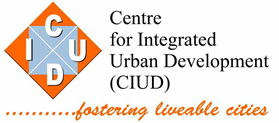Sixty-years-old Maili Bharati is a single woman residing in Dhobikhola; ward no 2 of Godawari Municipality with her divorcee daughter and a grandson. She has been single for over 35 years. She raised her two daughters with all she had, doing labor works and farming, but she could not educate her daughters and she regrets it by saying, “If I had the support of my husband’s family I could have sent my daughters to school and they wouldn’t have to face the crisis and sorrow like me.
Sixty-years-old Maili Bharati is a single woman residing in Dhobikhola; ward no 2 of Godawari Municipality with her divorcee daughter and a grandson. She has been single for over 35 years. She raised her two daughters with all she had, doing labor works and farming, but she could not educate her daughters and she regrets it by saying, “If I had the support of my husband’s family I could have sent my daughters to school and they wouldn’t have to face the crisis and sorrow like me. Our society does not support single women as the way they should and I did not get any support at the beginning. They have changed now as I have learned to raise my voice. They are supportive and we participate in all the awareness raising programs”.
Maili’s house and toilet were completely damaged by the earthquake of 2015 and currently she is living in a temporary shelter beside her damaged house. Through ‘Earthquake Recovery and Reconstruction’ project, Oxfam/CIUD had supported the marginalized families including poor single women for the construction of total 150 household latrine damaged by earthquake in ward no.2 and 3 of the Godawari Municipality. Maili Bharati was one of such women who received the support to construct her toilet. After the construction, she is now relieved as she did not have to defecate outside and also that she found it much convenient and safe using her own latrine.
Located at Dhobikhola, in Godavari municipality, Tin Dhare Muhan water supply system was one of many affected water sources during 2015 earthquake. It was the only spring water source for the community upon which over 61 households had depended. The water was not treated and they had lined up pipes from the water source to households in a haphazard way.
Like all others, Maili Bharati also used to fetch water directly from the source. It was time consuming and difficult for her. Oxfam/CIUD had supported the community in rehabilitation of the scheme with the construction of an intake, a reservoir tank of 12000 litres, 1790 metre HDPE pipe, 3 public tap stands. The user committee has connected 43 private taps themselves with metre system and collect tariff monthly from the households. She was the first person to join private tap at her house. And now she is using the water for domestic purpose as well as for irrigation. “I consider myself as a proud resident of Dhobikhola as I was the first person to connect private tap and all of the households connected it afterwards. Water at doorstep has eased my life and my health as I used to have back pain whenever I had to carry water from the source.”
‘ Juthelno‘ in Swastha Community
For the development of a Swastha Community, 30 households of Dhobikhola have also been supported for the construction of ‘Juthelno’ with soak pit and Maili Bharati is one such beneficiary. They have been given orientations on safe drinking water, solid waste management, menstrual hygiene management, food hygiene and hygienic use of toilet. She has been participating in all such trainings and orientations as she thinks such trainings will help enhance capacity of an individual.”
“From the various orientations on water, I have changed my habit of drinking water directly from tap nowadays; I drink filtered water and suggest my daughter and grandson to do so as well.”
